
Aug 31, 2015 | Non categorizzato
 It was a decidedly ecumenical move on the part of Pope Francis to dedicate a “World Day of Prayer for the Care of Creation.” He not only identified the current ecological crisis as one of the most pressing urgencies of our time but also wanted to highlight the urgent need to act no longer fragmented and in isolation but “together” – not only in the field of ecology but in all the challenges facing humankind. The idea of a World Day of Prayer had been suggested to him by Orthodox Metropolitan John of Pergamom who spoke at the public presentation of the Encyclical Letter Laudato sì on June 18th. To underscore the added value of a prayer that is made by agreement (Mt. 18:19), in the letter that institutes the Day of Prayer (June 8, 2015) the Pope exhorts: “Sharing the concern of my beloved brother, Ecumenical Patriarch Bartholomew, for the future of creation, and at the suggestion of his representative, Metropolitan John of Pergamum . . .” As if to say that it was not important who had the idea; we can always learn from each other! And to reiterate the idea, towards the end of the document, the Pope urges Cardinal Koch, president of the Pontifical Council for the Promotion of Christians Unity, “to ensure that it is coordinated with similar initiatives undertaken by the World Council of Churches.” The World Council of Churches will dedicate “the period between September 1st (the first day of the Orthodox Liturgical Year) to October 4th (feast day of Saint Francis of Assisi on the Roman Catholic liturgical calendar) – to a Time for Creation with a variety of initiatives in favour of the environment and its connection to justice and peace. The Pope’s choice of September 1st for the yearly celebration of the World Day is quite significant, since it is the same as that of the Orthodox brothers and sisters and the day that begins the Time for Creation that was established by the World Council of Churches. Also significant is his wish that other churches and ecclesial communities join in, so that it might be a fruitful opportunity for giving witness “to our growing communion.” The annual World Day of Prayer for the Care of Creation will offer individual believers and communities “the precious opportunity to reaffirm their personal vocation to be stewards of creation, to thank God for the wonderful handiwork which he has entrusted to our care,” and precisely because it is destined to involve Christians from various denominations speaking with one voice, it will be a further concrete and common message from Christians to the world. A passion for the protection of Creation has also characterised the Focolare’s commitment with its international network EcoOne that offers a space for anyone working in the field of the environment to share ideas and concrete projects. The Movement’s involvement in the field of ecumenism is also significant, especially in places where there is a high concentration from people of different denominations. For the Focolare the World Day of Prayer for the Protection of Creation represents a magnificent providential world event that will join its members in prayer, beseeching from God the preservation of the Home that welcomes the great human family. But it will also join together people of good will from all backgrounds and beliefs in coming up with new strategies and answers for the environment and for a more united world.
It was a decidedly ecumenical move on the part of Pope Francis to dedicate a “World Day of Prayer for the Care of Creation.” He not only identified the current ecological crisis as one of the most pressing urgencies of our time but also wanted to highlight the urgent need to act no longer fragmented and in isolation but “together” – not only in the field of ecology but in all the challenges facing humankind. The idea of a World Day of Prayer had been suggested to him by Orthodox Metropolitan John of Pergamom who spoke at the public presentation of the Encyclical Letter Laudato sì on June 18th. To underscore the added value of a prayer that is made by agreement (Mt. 18:19), in the letter that institutes the Day of Prayer (June 8, 2015) the Pope exhorts: “Sharing the concern of my beloved brother, Ecumenical Patriarch Bartholomew, for the future of creation, and at the suggestion of his representative, Metropolitan John of Pergamum . . .” As if to say that it was not important who had the idea; we can always learn from each other! And to reiterate the idea, towards the end of the document, the Pope urges Cardinal Koch, president of the Pontifical Council for the Promotion of Christians Unity, “to ensure that it is coordinated with similar initiatives undertaken by the World Council of Churches.” The World Council of Churches will dedicate “the period between September 1st (the first day of the Orthodox Liturgical Year) to October 4th (feast day of Saint Francis of Assisi on the Roman Catholic liturgical calendar) – to a Time for Creation with a variety of initiatives in favour of the environment and its connection to justice and peace. The Pope’s choice of September 1st for the yearly celebration of the World Day is quite significant, since it is the same as that of the Orthodox brothers and sisters and the day that begins the Time for Creation that was established by the World Council of Churches. Also significant is his wish that other churches and ecclesial communities join in, so that it might be a fruitful opportunity for giving witness “to our growing communion.” The annual World Day of Prayer for the Care of Creation will offer individual believers and communities “the precious opportunity to reaffirm their personal vocation to be stewards of creation, to thank God for the wonderful handiwork which he has entrusted to our care,” and precisely because it is destined to involve Christians from various denominations speaking with one voice, it will be a further concrete and common message from Christians to the world. A passion for the protection of Creation has also characterised the Focolare’s commitment with its international network EcoOne that offers a space for anyone working in the field of the environment to share ideas and concrete projects. The Movement’s involvement in the field of ecumenism is also significant, especially in places where there is a high concentration from people of different denominations. For the Focolare the World Day of Prayer for the Protection of Creation represents a magnificent providential world event that will join its members in prayer, beseeching from God the preservation of the Home that welcomes the great human family. But it will also join together people of good will from all backgrounds and beliefs in coming up with new strategies and answers for the environment and for a more united world.
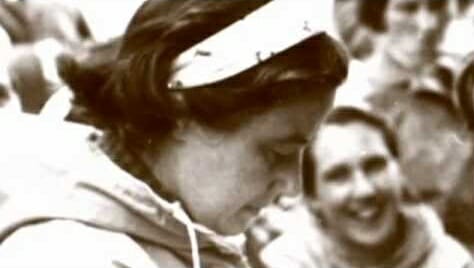
Aug 30, 2015 | Non categorizzato
 “Seeing what the Holy Spirit has done with us and with many other spiritual and social “enterprises” that are at work the Church today, I cannot but hope that He will continue to act now and always with the same generosity and magnanimity. And this holds true not only for brand new works that will arise from his love, but also for the development of those that already exist, like our own. Meanwhile, I dream that the atmosphere in our Church will be more suited to her identity as the Bride of Christ; a Church which can be seen by the world as being more beautiful, more one, more holy, more charismatic, more akin to Christ her Spouse. I dream of her being a beacon for humanity. And I dream of seeing in her a holiness of the people, never seen before. I dream that the lived siblinghood, that is gaining momentum today in the consciences of millions of people, will be practised more widely across the globe, so that in the third millennium it will be a general, universal reality. Consequently, I dream of fewer wars and conflicts, less hunger, and the reduction of the thousand other evils in the world. I dream of an ever more intense dialogue of love among the Churches so that the formation of the one Church is seen to be close at hand. I dream of a more living and active dialogue among people of the most varied religions linked to one another by love, by “the Golden Rule” present in all their sacred texts. I dream of greater encounter and mutual enrichment among the various cultures in the world, so that they may give rise to a world culture that highlights those values which have always been the true wealth of individual peoples, and I dream that these values will be seen by all as global wisdom. I dream that the Holy Spirit will continue to enrich the Churches and strengthen the “seeds of the Word” beyond them, so that the world may continually receive new light, life, and works which He alone can is able to give. So that ever-greater numbers of men and women may set out towards straight paths, converging on their Creator, and putting their hearts and souls at his disposal. I dream of Gospel-based relationships not only among individuals, but also among groups, movements, religious and lay associations; among peoples and among States, so that it becomes logical to love other people’s countries as our own; and logical to tend towards a universal communion of goods, at least as a goal to reach. (…) In a word, I dream of already witnessing the new heavens and new earth, as far as this is possible here on earth. I am dreaming of many things, but we have a millennium to see them come true.” Chiara Lubich Extract from: “Attualità. Leggere il proprio tempo”, Città Nuova, Rome 2013, pp. 102-103
“Seeing what the Holy Spirit has done with us and with many other spiritual and social “enterprises” that are at work the Church today, I cannot but hope that He will continue to act now and always with the same generosity and magnanimity. And this holds true not only for brand new works that will arise from his love, but also for the development of those that already exist, like our own. Meanwhile, I dream that the atmosphere in our Church will be more suited to her identity as the Bride of Christ; a Church which can be seen by the world as being more beautiful, more one, more holy, more charismatic, more akin to Christ her Spouse. I dream of her being a beacon for humanity. And I dream of seeing in her a holiness of the people, never seen before. I dream that the lived siblinghood, that is gaining momentum today in the consciences of millions of people, will be practised more widely across the globe, so that in the third millennium it will be a general, universal reality. Consequently, I dream of fewer wars and conflicts, less hunger, and the reduction of the thousand other evils in the world. I dream of an ever more intense dialogue of love among the Churches so that the formation of the one Church is seen to be close at hand. I dream of a more living and active dialogue among people of the most varied religions linked to one another by love, by “the Golden Rule” present in all their sacred texts. I dream of greater encounter and mutual enrichment among the various cultures in the world, so that they may give rise to a world culture that highlights those values which have always been the true wealth of individual peoples, and I dream that these values will be seen by all as global wisdom. I dream that the Holy Spirit will continue to enrich the Churches and strengthen the “seeds of the Word” beyond them, so that the world may continually receive new light, life, and works which He alone can is able to give. So that ever-greater numbers of men and women may set out towards straight paths, converging on their Creator, and putting their hearts and souls at his disposal. I dream of Gospel-based relationships not only among individuals, but also among groups, movements, religious and lay associations; among peoples and among States, so that it becomes logical to love other people’s countries as our own; and logical to tend towards a universal communion of goods, at least as a goal to reach. (…) In a word, I dream of already witnessing the new heavens and new earth, as far as this is possible here on earth. I am dreaming of many things, but we have a millennium to see them come true.” Chiara Lubich Extract from: “Attualità. Leggere il proprio tempo”, Città Nuova, Rome 2013, pp. 102-103
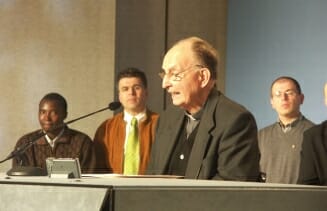
Aug 29, 2015 | Non categorizzato
 Pasquale Foresi commented many times on the theology of the charism of Chiara Lubich, underscoring its novelty for both living and thinking. Between 1990 and 1998 he was often called upon to answer questions that were posed by members of the Movement from a variety of vocational, cultural and geographical backgrounds. On one of these occasions he was asked for advice on how to live humility[1]. “Being humble simply means accepting to be who you are,” he said. “And all of us are sinners. If anyone says ‘I’m not a sinner,’ he lies; so all of us can have humility all the time. Saint Benedict’s outline seems quite wise to me and has always helped me to live. It could be summarised as follows: The first step for being humble is to accept humiliations, mortifications. . . One day, someone speaks badly of you at the office, in your workplace; there might be a misunderstanding between you and someone else, or even a calumny. . . You need to be able accept these tribulations and difficulties. The second step is to love humiliations, which is more than accepting them. This is the case, for example, when we have given our life for others and judgement and accusation begin to arise amongst the people for whom we have done much. These criticisms can have a basis in reality but are exaggerated. It is difficult to love such humiliations, but they’re beneficial for growing in the life of God. The third step is to prefer humiliations not only loving them, but being happy over them. As when someone speaks badly of you and you say: ‘This is a grace from God that I am receiving. . .” This is the highest grade which all of us should tend towards, because it returns us to that humility which draws us together. Obviously, the calumnies should always be clarified but with detachment, living the Gospel that says “Blessed are you when, lying, they will utter every sort of evil against you because of me. Rejoice and be glad because your reward is great in Heaven.” [1] Foresi, Pasquale. COLLOQUI, domande e risposte sulla spiritualità dell’unità, (Rome: Città Nuova Publishing House, 2009) p. 64.
Pasquale Foresi commented many times on the theology of the charism of Chiara Lubich, underscoring its novelty for both living and thinking. Between 1990 and 1998 he was often called upon to answer questions that were posed by members of the Movement from a variety of vocational, cultural and geographical backgrounds. On one of these occasions he was asked for advice on how to live humility[1]. “Being humble simply means accepting to be who you are,” he said. “And all of us are sinners. If anyone says ‘I’m not a sinner,’ he lies; so all of us can have humility all the time. Saint Benedict’s outline seems quite wise to me and has always helped me to live. It could be summarised as follows: The first step for being humble is to accept humiliations, mortifications. . . One day, someone speaks badly of you at the office, in your workplace; there might be a misunderstanding between you and someone else, or even a calumny. . . You need to be able accept these tribulations and difficulties. The second step is to love humiliations, which is more than accepting them. This is the case, for example, when we have given our life for others and judgement and accusation begin to arise amongst the people for whom we have done much. These criticisms can have a basis in reality but are exaggerated. It is difficult to love such humiliations, but they’re beneficial for growing in the life of God. The third step is to prefer humiliations not only loving them, but being happy over them. As when someone speaks badly of you and you say: ‘This is a grace from God that I am receiving. . .” This is the highest grade which all of us should tend towards, because it returns us to that humility which draws us together. Obviously, the calumnies should always be clarified but with detachment, living the Gospel that says “Blessed are you when, lying, they will utter every sort of evil against you because of me. Rejoice and be glad because your reward is great in Heaven.” [1] Foresi, Pasquale. COLLOQUI, domande e risposte sulla spiritualità dell’unità, (Rome: Città Nuova Publishing House, 2009) p. 64.
Aug 28, 2015 | Non categorizzato
This year, the annual general meeting will be held over a period of 2 weeks. The zone delegates, who will be representing 36 geographic areas and 6 Focolare little towns, will be taking stock of the life of the Movement in the different parts of the world and will be establishing guidelines to meet the challenges of the coming year.
Aug 28, 2015 | Non categorizzato, Word of
Listen to the Word of Life
If we all truly loved our neighbour as ourselves, wars would cease, corruption would disappear, universal brotherhood wouldn’t be a utopia, and the civilization of love would soon become a reality. Here is one of those words of the Gospel that demand to be put into action immediately, this very instant. It is so utterly clear, and demanding, that it does not need a huge amount of comment. To see the power it contains, it may be useful, all the same, to look at it in its context. Jesus is replying to the question of one of the scribes (one of the students of the Bible) who had asked him which was the greatest commandment. It was an open question, especially as 613 precepts to be followed had been identified. One of the great teachers who had lived a few years before, Rabbi Shammai, had refused to say what he thought was the chief commandment. Others instead, as Jesus also did, focused on the central place of love. Rabbi Hillel, for example, affirmed: ‘Do not do to your neighbour anything that is hateful to yourself: this is the whole of the Law. The rest is commentary.’[1] Jesus is not the only one to take up the teaching about the central place of love, but he put together, as a single commandment, the love of God (see Dt 6:4) and the love of neighbour (see Lev 19:18). The reply he gives to the scribe who is questioning him is in fact: ‘The first [commandment] is, “Hear, O Israel: the Lord our God, the Lord is one; you shall love the Lord your God with all your heart, and with all your soul, and with all your mind, and with all your strength.” The second is this, “You shall love your neighbour as yourself.” There is no other commandment greater than these.’ ‘You shall love your neighbour as yourself’ The second part of the single commandment is the expression of the first, love for God. Every one of God’s creatures is so close to his heart that to give him glory, to show him in action the love we have for him, there is no other way than to be the expression of his love for all. As parents are happy when they see their children getting on with each other, helping each other, staying united, so also God – who for us is like a father and a mother – is happy when he sees we love our neighbour as ourselves, and so contribute to bringing about the unity of the human family. For centuries Prophets had already been explaining to the People of Israel that God wants love and not sacrifices and holocausts (see Hosea 6:6). Jesus himself recalled their teaching when he said: ‘Go and learn what this means, “I desire mercy, not sacrifice.” For I have come to call not the righteous but sinners’ (Mt 9:13). How indeed can we love God who we cannot see, if we don’t love our brother or sister (see 1 Jn 4:20)? We love them, we serve them, we honour them to the measure that we love, serve, honour every person, both the friend and the unknown, from our own or from another people, above all the ‘small’, those most in need. This is the invitation to the Christian in today’s world: to translate worship into life, to go forth from the churches, where we adore, love, praise God, so that we go to meet others, in such a way as to practise what we have just learnt in prayer and communion with God. ‘You shall love your neighbour as yourself’ How then can we live this command of the Lord’s? Let’s remind ourselves that it is part of an inseparable pair that includes love for God. We have to give ourselves time to get to know what love is and how we can love, and so we need to give space to moments of prayer, of ‘contemplation’, of dialogue with him. We learn love from God, who is Love. We don’t steal any time from our neighbour when we stay with God, indeed we prepare ourselves to love in a way that is increasingly generous and appropriate. At the same time, when we come back to God having loved other people, our prayer is more genuine, more true, and is filled with all the persons we have met, who we bring back to him. To love our neighbours as ourselves we need, then, to get to know them as they know themselves. We ought to reach the point of loving as the other wants to be loved and not as we would like to love. Now that our societies are becoming always more multicultural, with the presence of people from a huge variety of backgrounds, the challenge is even greater. Someone who goes to a new country has to learn its traditions and values; only in this way can they understand and love the people who live there. The same thing is true for those who receive new immigrants, who are often bewildered, struggling with a new language, and finding it difficult to fit in. Differences are present within the same family, in the workplace or in the locality, even when they are made up of persons who belong to the same culture. Would we like to find someone who’s ready to set aside time to listen to us, to help us revise for an exam, to find a job, to tidy our house? Perhaps the other person has similar needs. We have to know how to intuit them, being attentive to the other, adopting a sincere attitude of listening, putting ourselves in the other’s shoes. The quality of our love also matters. The apostle Paul, in his celebrated hymn to charity, lists some of its characteristics, which it could be useful to remember: it is patient, kind, not envious, not boastful or arrogant, does not insist on its own way, is not irritable, keeps no score of wrongs, but bears all things, believes all things, hopes all things, endures all things (see 1 Cor 13:4-7). How many chances and how many nuances there are to living: ‘You shall love your neighbour as yourself’! In conclusion we can recall that this principal for human existence is at the basis of the well-known ‘golden rule’ that we find in all religions and in all the great teachers of ‘secular’ culture. We could try to find, at the origins of our own cultural tradition or religious belief, similar invitations to love our neighbour and then help one another to live them together: Hindus and Muslims, Buddhists and followers of traditional religions, Christians and men and women of good will. We have to work together to create a new mentality that gives value to the other, that instils and encourages respect for the person, that cares and protects minorities, that is attentive to the weakest, that sets aside one’s own interests to put those of the other into the first place. If we were all truly aware of having to love our neighbour as ourselves, to the point of not doing to the other what we do not wish to be done to us and that we should do to the other what we wish the other would do for us, wars would cease, corruption would disappear, universal fraternity would be no utopia and the civilization of love would soon become a reality. Fabio Ciardi [1] Babylonian Talmud, Shabbath Folio 31a.
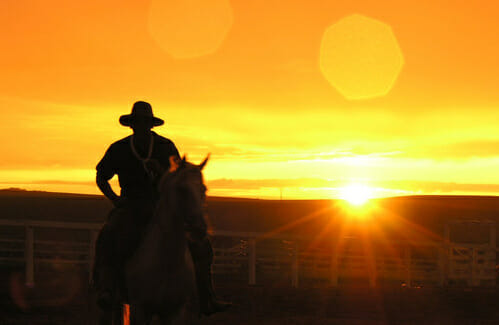
Aug 28, 2015 | Focolare Worldwide
 Every day around the world thousands of people stand up for an integral economy. Aldo Calliera is the owner of El Alba, a company inserted within the Economy of Communion, involved in the raising of livestock in Santiago, North Argentina. Work begins early for this country folk, even before the break of dawn. Before the day begins mate is prepared, a typical South American beverage that is meant to be sipped through a silver straw by a group of friends. With each new round, stories are shared and bodies warmed. The owner did not wish to lose this age old tradition of his guachos, and he began to attend the early morning materas, but he was surprised that with his arrival the conversation languished and silence fell on the assembly. It was the same every day. Guachos are reared in a culture where everyone falls silent when the boss arrives, not because of disappointment but because from the times of the Conquest the worker has been considered inferior to the master. Thus, Calliera went away each day feeling that he had been given a punch in the stomach, and his heart shrank at the thought at not having been able to penetrate the wall. Gradually his insistence enabled hearts to open and names be shared, all but one: Ernesto’s. One day, Calliera was programming “the service,” which is the time and location coupling for the production of calves. After the planning session the engineer who was with him, was about to issue orders to the workers, but Calliera stepped in saying: “Leave it to me, to talk to my men.” Then he explained to the workers what had to be done and, instead of simply giving them orders, he asked them for their opinion. Ernesto, whose voice the owner barely knew, spoke up for the first time: “I think that we won’t have any calves next year.” Calliera was doubly surprised and asked why. The answer was simple: there was not enough water for all the animals at the place where he had planned to take them for mating. It might seem that anyone could have said it, but in this culture it is customary to respond “Yes, sir” to one’s boss, even when you disagree. Callieri relects: “Then I realised that it is only by having an optimistic vision of others that you can draw out the best in them. Only in this way is it possible to find treasures in others that otherwise remain hidden, and to discover the best way to draw them out. Each person’s talents are like virtues that you discover when there is mutual trust.” Needless to say, the Callieri heard Ernesto’s advice and changed the “service” and things went better. . . The matera had produced a small cultural change that helped everyone to build relationships based on reciprocity that neither workers, nor forefathers would ever have immagined. Source: EoC online
Every day around the world thousands of people stand up for an integral economy. Aldo Calliera is the owner of El Alba, a company inserted within the Economy of Communion, involved in the raising of livestock in Santiago, North Argentina. Work begins early for this country folk, even before the break of dawn. Before the day begins mate is prepared, a typical South American beverage that is meant to be sipped through a silver straw by a group of friends. With each new round, stories are shared and bodies warmed. The owner did not wish to lose this age old tradition of his guachos, and he began to attend the early morning materas, but he was surprised that with his arrival the conversation languished and silence fell on the assembly. It was the same every day. Guachos are reared in a culture where everyone falls silent when the boss arrives, not because of disappointment but because from the times of the Conquest the worker has been considered inferior to the master. Thus, Calliera went away each day feeling that he had been given a punch in the stomach, and his heart shrank at the thought at not having been able to penetrate the wall. Gradually his insistence enabled hearts to open and names be shared, all but one: Ernesto’s. One day, Calliera was programming “the service,” which is the time and location coupling for the production of calves. After the planning session the engineer who was with him, was about to issue orders to the workers, but Calliera stepped in saying: “Leave it to me, to talk to my men.” Then he explained to the workers what had to be done and, instead of simply giving them orders, he asked them for their opinion. Ernesto, whose voice the owner barely knew, spoke up for the first time: “I think that we won’t have any calves next year.” Calliera was doubly surprised and asked why. The answer was simple: there was not enough water for all the animals at the place where he had planned to take them for mating. It might seem that anyone could have said it, but in this culture it is customary to respond “Yes, sir” to one’s boss, even when you disagree. Callieri relects: “Then I realised that it is only by having an optimistic vision of others that you can draw out the best in them. Only in this way is it possible to find treasures in others that otherwise remain hidden, and to discover the best way to draw them out. Each person’s talents are like virtues that you discover when there is mutual trust.” Needless to say, the Callieri heard Ernesto’s advice and changed the “service” and things went better. . . The matera had produced a small cultural change that helped everyone to build relationships based on reciprocity that neither workers, nor forefathers would ever have immagined. Source: EoC online
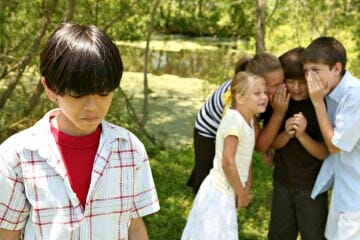
Aug 27, 2015 | Focolare Worldwide, Senza categoria
An illness  My husband has been ill for two years now because of a brain tumour. At times he complains because objects fall from his hands. I made an agreement with my daughters to never make him feel that something strange has happened. Many times, upon discreetly observing how they treat their father with care, and aware of the sacrifices and many renunciations they undertake to help the family, I see that they are more mature for their age. We are undergoing as a family, a period we have never experienced before. Despite the inexpressible suffering weighing on us, we feel a great serenity. (B.S. – Poland) The old man There was no more food in the house. I took a bag of cornmeal and 1,000 francs: half for transportation and the other half for the mill. I hailed the first taxi that came by. Beside the taxi driver, an old man was profoundly asleep. I noticed that the taxi driver was trying to slip the man’s wallet from his bag, so when I arrived at my destination I said: «This is my father, and he has to get off with me.» The driver continued to say that this was not where the man wanted to go, but due to my insistence, said he would let the man get off for 1,000 francs. I gave it to him immediately, and taking the bag, I helped the old man, still asleep, get off. Over here it occurs often that taxi drivers drug people in order to rob them. The old man awoke when I poured water over his head. He looked for his bag and checked if all his money was there. He said to me: “You saved my life”, and gave me 5,000 francs. I looked for a taxi driver I trusted who accompanied him safe and sound to his village. (M.A. – Cameroon)
My husband has been ill for two years now because of a brain tumour. At times he complains because objects fall from his hands. I made an agreement with my daughters to never make him feel that something strange has happened. Many times, upon discreetly observing how they treat their father with care, and aware of the sacrifices and many renunciations they undertake to help the family, I see that they are more mature for their age. We are undergoing as a family, a period we have never experienced before. Despite the inexpressible suffering weighing on us, we feel a great serenity. (B.S. – Poland) The old man There was no more food in the house. I took a bag of cornmeal and 1,000 francs: half for transportation and the other half for the mill. I hailed the first taxi that came by. Beside the taxi driver, an old man was profoundly asleep. I noticed that the taxi driver was trying to slip the man’s wallet from his bag, so when I arrived at my destination I said: «This is my father, and he has to get off with me.» The driver continued to say that this was not where the man wanted to go, but due to my insistence, said he would let the man get off for 1,000 francs. I gave it to him immediately, and taking the bag, I helped the old man, still asleep, get off. Over here it occurs often that taxi drivers drug people in order to rob them. The old man awoke when I poured water over his head. He looked for his bag and checked if all his money was there. He said to me: “You saved my life”, and gave me 5,000 francs. I looked for a taxi driver I trusted who accompanied him safe and sound to his village. (M.A. – Cameroon)  Trendy pants My classmates made fun of me because I didn’t have trendy clothes. I have a big family and we live in the countryside. One day I helped a classmate who was having a hard time with math and we became friends. Another day the others started to joke about my pants and he defended me. From that time on, all this stopped. We need to be at least two to be able to fight wrong ideas. In a short time we all became friends, and when they had to choose the class leader, they chose me. (E.C. – Italy) The beggar In my community we pray daily to God to bless our food, and help us to share it with those in need. At lunch time the usual beggar knocked on the door and we had nothing but cornmeal porridge for lunch and dinner. We did not have any money either, so I told the beggar that we did not have anything. When I sat down for lunch, I had no appetite. After a while, a phrase came to my mind, “Give and you will be given.” So I gathered what we had and gave it to the beggar who was still waiting. Not long after that, someone knocked on the door. A girl was there holding a big plate of cornmeal porridge saying: «This is from mama». It’s incredible how God is so punctual. (Sister Madeleine – Burkina Faso)
Trendy pants My classmates made fun of me because I didn’t have trendy clothes. I have a big family and we live in the countryside. One day I helped a classmate who was having a hard time with math and we became friends. Another day the others started to joke about my pants and he defended me. From that time on, all this stopped. We need to be at least two to be able to fight wrong ideas. In a short time we all became friends, and when they had to choose the class leader, they chose me. (E.C. – Italy) The beggar In my community we pray daily to God to bless our food, and help us to share it with those in need. At lunch time the usual beggar knocked on the door and we had nothing but cornmeal porridge for lunch and dinner. We did not have any money either, so I told the beggar that we did not have anything. When I sat down for lunch, I had no appetite. After a while, a phrase came to my mind, “Give and you will be given.” So I gathered what we had and gave it to the beggar who was still waiting. Not long after that, someone knocked on the door. A girl was there holding a big plate of cornmeal porridge saying: «This is from mama». It’s incredible how God is so punctual. (Sister Madeleine – Burkina Faso)
![Religions for Peace – Europe]()
Aug 26, 2015 | Non categorizzato
 Interfaith encounter as a Peace Building Process European Assembly – Castel Gandolfo 28 Oct. – 1st Nov.. 2015 Organized in conjunction with the Focolare Movement Program
Interfaith encounter as a Peace Building Process European Assembly – Castel Gandolfo 28 Oct. – 1st Nov.. 2015 Organized in conjunction with the Focolare Movement Program
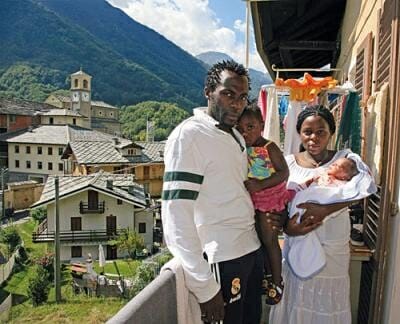
Aug 26, 2015 | Focolare Worldwide
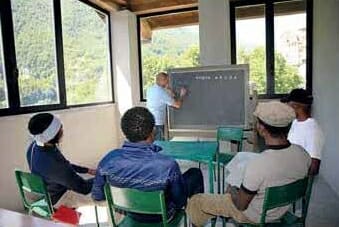 Five years ago, the town was classified as having one of the lowest socio-economic communities in the Piemonte region. But the entire community learned about hospitality towards others and today, 30 refugees, almost all Africans, besides a family from Kosovo with three children, have been living for eight months now, in a housing unit owned by the Cottolengo Institute. “We have adopted them,” confided two eighty year olds sitting in the town square. They had done so during the war, specified the President of the “Pro Loco” organisation, with the Jews and the members of the Italian resistance movement. History repeats itself. The mayor, Lisa Giacomo did not have to convince himself and the 180 residents of the village. Out of these, only 90 live in Lemie all year round. It had already happened in 2011, when the problem of hosting the migrants and refugees arriving on the Italian coasts with rusty boats still was not such a burning issue. Already then, for Lemie, that arrival of ‘friends’ had symbolized the rebirth of the community The 12 children taken care of by educators and the parish priest were baptised in the parish Church during a ceremony which went down in the history of the town. It was a feast. All the families with the children were welcomed by families and other children of those alpine valleys.
Five years ago, the town was classified as having one of the lowest socio-economic communities in the Piemonte region. But the entire community learned about hospitality towards others and today, 30 refugees, almost all Africans, besides a family from Kosovo with three children, have been living for eight months now, in a housing unit owned by the Cottolengo Institute. “We have adopted them,” confided two eighty year olds sitting in the town square. They had done so during the war, specified the President of the “Pro Loco” organisation, with the Jews and the members of the Italian resistance movement. History repeats itself. The mayor, Lisa Giacomo did not have to convince himself and the 180 residents of the village. Out of these, only 90 live in Lemie all year round. It had already happened in 2011, when the problem of hosting the migrants and refugees arriving on the Italian coasts with rusty boats still was not such a burning issue. Already then, for Lemie, that arrival of ‘friends’ had symbolized the rebirth of the community The 12 children taken care of by educators and the parish priest were baptised in the parish Church during a ceremony which went down in the history of the town. It was a feast. All the families with the children were welcomed by families and other children of those alpine valleys.  “Of course, at the start we were a bit surprised,” Lisa explained, “the population here has a a very high age bracket average, and it’s not easy to open oneself to others. Or at least, this was not the case. I didn’t have to give a lot of explanations since no one asked any questions. Giving hospitality seemed but a natural thing .” And the situation today is still the same as in 2011. And as in the past, the men and woman that arrived from Libya and other sub-Saharian countries will have to work, and make themselves useful. “With the Province of Turin in 2011 we had also implemented some job offers. Now some are applying for ‘restitution volunteer work’ which is useful to them and also to us.” the mayor remarked. And not only do these ‘refugee friends’ wish to stay in Italy, but the community itself is asking them to stay. “The citizens immediately accepted them, but what’s more, welcomed them,” confirmed Lisa, “and a couple of residents found jobs as educators with an association related to a cooperative. Problems? “Only bureaucratic ones. They applied for protection as refugees, but the time frames are very long.” Then the transportation issues: “I will ask the agencies managing the coaches for Turin to help them, since I think it would useless to make them pay the bus tickets for Turin.” On asking the mayor if the village has been reborn due to the migrants, he smiles and opens his arms . “Look at this valley. It is full of second homes, that open only in summer. Many young people continue to leave, even if their bond with valley is still strong. The new people who have come have brought some liveliness. Just go to the playground on a sunny afternoon and finally you will see children playing, shouting, enjoying themselves. They have even saved the school.” Excuse me? “Certainly. Five children more in school allowed the school to keep more teachers and a better quality in education. What else can we ask of these friends we have welcomed among us? The family has been extended and Lemie is no longer small and marginal. We want to be a different village, new and open to all.” Original article in Italian: Città Nuova online
“Of course, at the start we were a bit surprised,” Lisa explained, “the population here has a a very high age bracket average, and it’s not easy to open oneself to others. Or at least, this was not the case. I didn’t have to give a lot of explanations since no one asked any questions. Giving hospitality seemed but a natural thing .” And the situation today is still the same as in 2011. And as in the past, the men and woman that arrived from Libya and other sub-Saharian countries will have to work, and make themselves useful. “With the Province of Turin in 2011 we had also implemented some job offers. Now some are applying for ‘restitution volunteer work’ which is useful to them and also to us.” the mayor remarked. And not only do these ‘refugee friends’ wish to stay in Italy, but the community itself is asking them to stay. “The citizens immediately accepted them, but what’s more, welcomed them,” confirmed Lisa, “and a couple of residents found jobs as educators with an association related to a cooperative. Problems? “Only bureaucratic ones. They applied for protection as refugees, but the time frames are very long.” Then the transportation issues: “I will ask the agencies managing the coaches for Turin to help them, since I think it would useless to make them pay the bus tickets for Turin.” On asking the mayor if the village has been reborn due to the migrants, he smiles and opens his arms . “Look at this valley. It is full of second homes, that open only in summer. Many young people continue to leave, even if their bond with valley is still strong. The new people who have come have brought some liveliness. Just go to the playground on a sunny afternoon and finally you will see children playing, shouting, enjoying themselves. They have even saved the school.” Excuse me? “Certainly. Five children more in school allowed the school to keep more teachers and a better quality in education. What else can we ask of these friends we have welcomed among us? The family has been extended and Lemie is no longer small and marginal. We want to be a different village, new and open to all.” Original article in Italian: Città Nuova online
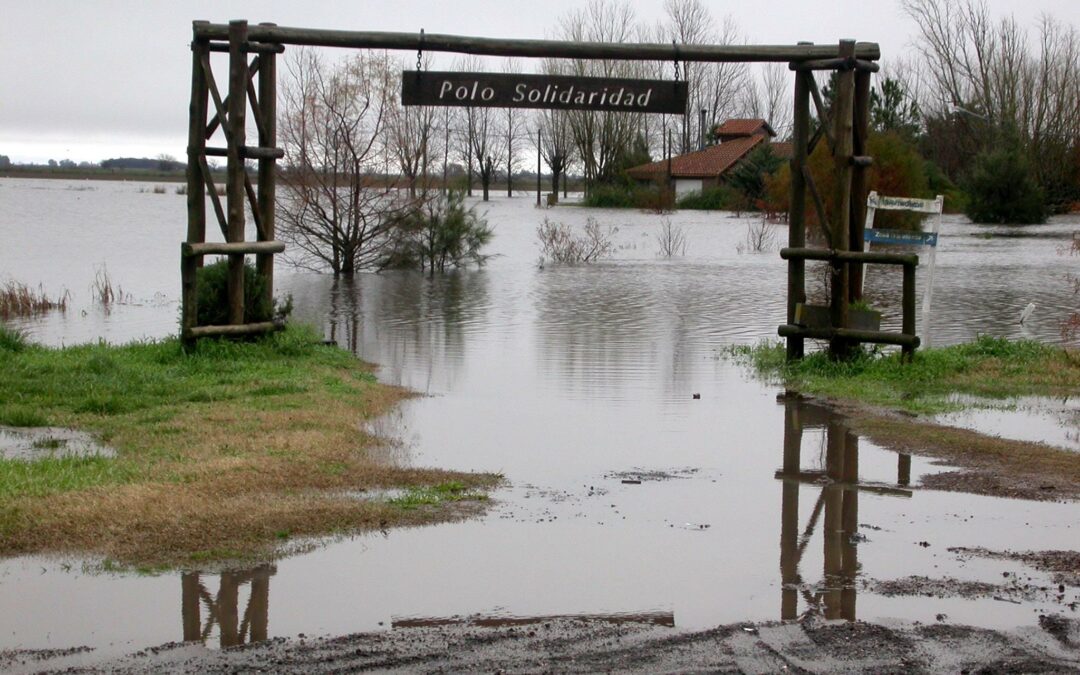
Aug 25, 2015 | Focolare Worldwide
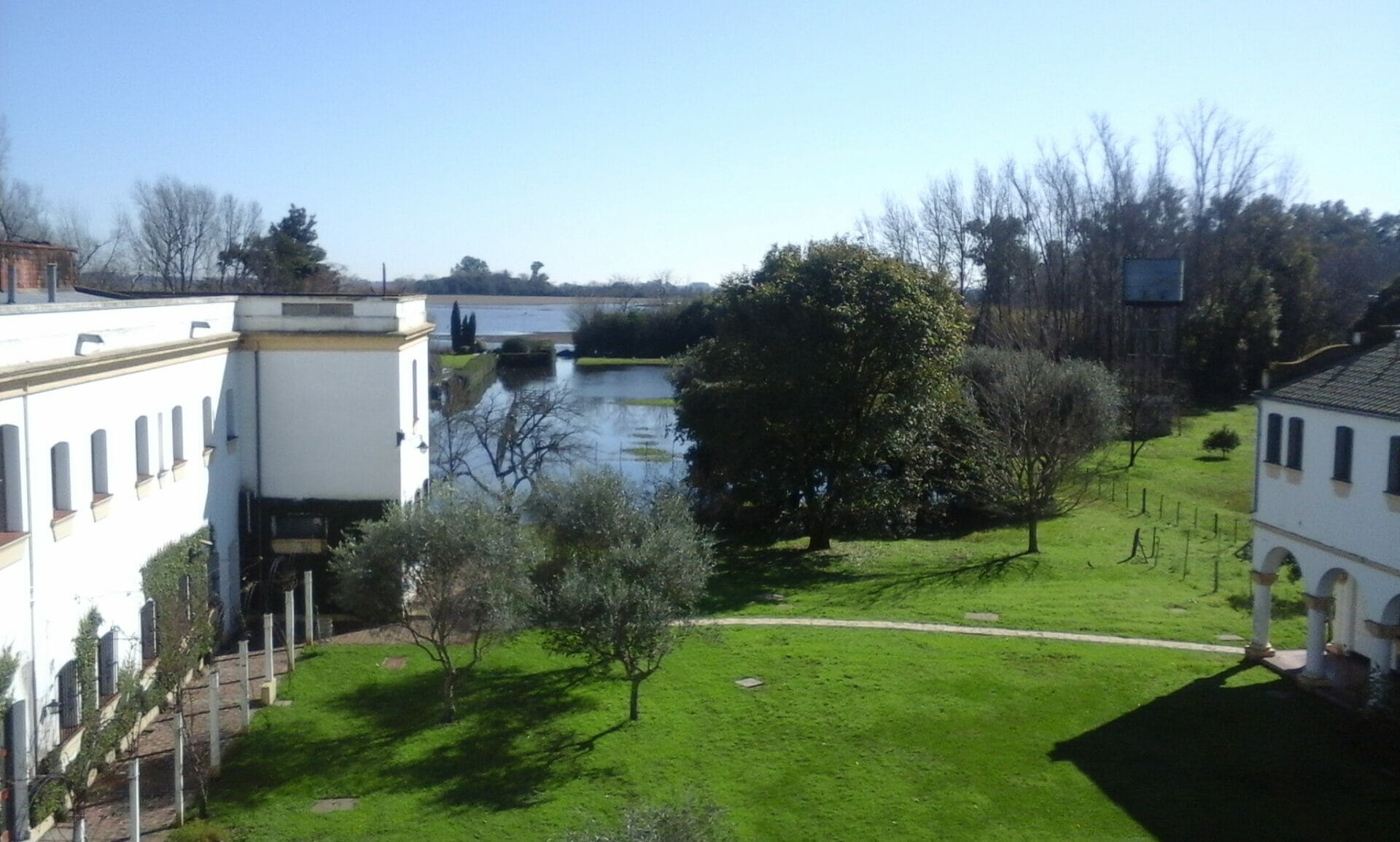 The Argentine provinces of Buenos Aires and Santa Fe were recently hit with severe rainfall. The local news media says that 20,000 people were affected and more than 4, 000 evacuees. Some roads are closed and others have limited access. The rains are unrelenting and a weather emergency is in force. However, in some regions the rain has begun to lessen. Mariapolis Lia, nestled in the Argentine pampas region, is literally submerged in water along with the Solidaridad Industrial Park where several Economy of Communion Businesses are located. “The water has flooded two buildings in the Park and also the garage of a third building,” Jorge Perrin writes from Solidad Industrial Park. Another two buildings are at risk: the water level has risen to a few centimetres. In the other buildings water has flooded the basements, but the living quarters are secure for the moment. The Primicias greenhouses along the road have also been flooded and the production completely lost, exept for a section of tomatoes. Pasticcino (coffee biscuits) is moving its production with the help of tractor from Primicias. For the moment the water has not flooded any of the dwellings in the Mariapolis itself.”
The Argentine provinces of Buenos Aires and Santa Fe were recently hit with severe rainfall. The local news media says that 20,000 people were affected and more than 4, 000 evacuees. Some roads are closed and others have limited access. The rains are unrelenting and a weather emergency is in force. However, in some regions the rain has begun to lessen. Mariapolis Lia, nestled in the Argentine pampas region, is literally submerged in water along with the Solidaridad Industrial Park where several Economy of Communion Businesses are located. “The water has flooded two buildings in the Park and also the garage of a third building,” Jorge Perrin writes from Solidad Industrial Park. Another two buildings are at risk: the water level has risen to a few centimetres. In the other buildings water has flooded the basements, but the living quarters are secure for the moment. The Primicias greenhouses along the road have also been flooded and the production completely lost, exept for a section of tomatoes. Pasticcino (coffee biscuits) is moving its production with the help of tractor from Primicias. For the moment the water has not flooded any of the dwellings in the Mariapolis itself.” 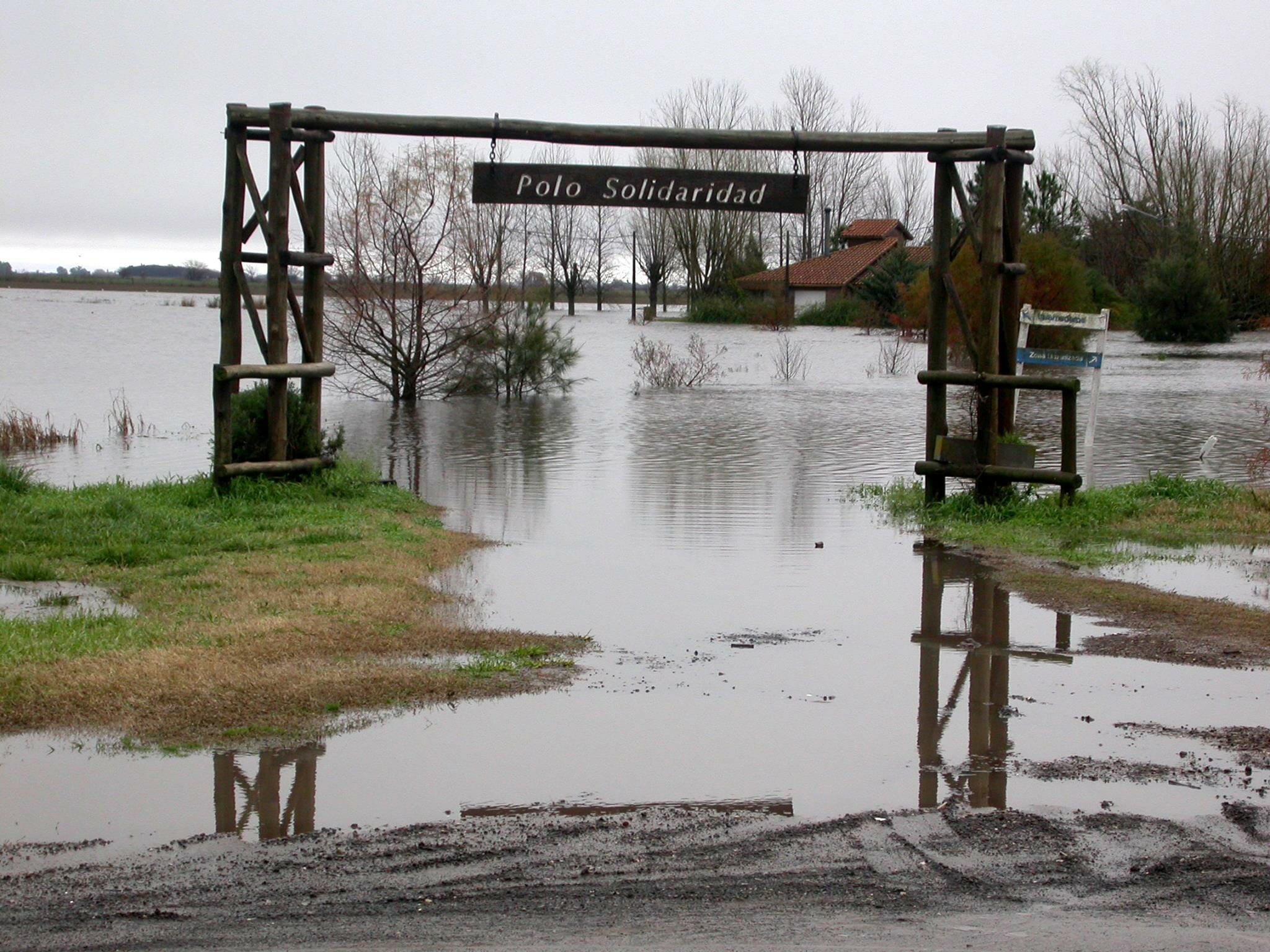 In many of the provinces of Buenos Aires the lagoons are connected with one another; the drainage channels are insufficient and the stretches of water become like oceans. “The channel of the Mariapolis and the Industrial Park had been cleaned recently and function well. But the problem of the road than links the Mariapolis to the nearby village is another story. It drains from another part. Access between the Mariapolis and the local village is completely flooded and it only possible to go from place to place in specialised vehicles.” “The solidarity amongst us is extraordinary,” he adds. The only automobiles capable of driving through the mud are the tractor and the Mariapolis van. So they’re always on the move transporting people to work, to school, to make purchases for others, or to take supplies to people, and so on. Throughout these days, in the countless telephone calls, in the communion amongst us, in the peaceful spirit with which we face every situation, I understand once again what a great family we are!” For enquiries on how to help.:polosolidaridad@gmail.com
In many of the provinces of Buenos Aires the lagoons are connected with one another; the drainage channels are insufficient and the stretches of water become like oceans. “The channel of the Mariapolis and the Industrial Park had been cleaned recently and function well. But the problem of the road than links the Mariapolis to the nearby village is another story. It drains from another part. Access between the Mariapolis and the local village is completely flooded and it only possible to go from place to place in specialised vehicles.” “The solidarity amongst us is extraordinary,” he adds. The only automobiles capable of driving through the mud are the tractor and the Mariapolis van. So they’re always on the move transporting people to work, to school, to make purchases for others, or to take supplies to people, and so on. Throughout these days, in the countless telephone calls, in the communion amongst us, in the peaceful spirit with which we face every situation, I understand once again what a great family we are!” For enquiries on how to help.:polosolidaridad@gmail.com

 It was a decidedly ecumenical move on the part of Pope Francis to dedicate a “World Day of Prayer for the Care of Creation.” He not only identified the current ecological crisis as one of the most pressing urgencies of our time but also wanted to highlight the urgent need to act no longer fragmented and in isolation but “together” – not only in the field of ecology but in all the challenges facing humankind. The idea of a World Day of Prayer had been suggested to him by Orthodox Metropolitan John of Pergamom who spoke at the public presentation of the Encyclical Letter Laudato sì on June 18th. To underscore the added value of a prayer that is made by agreement (Mt. 18:19), in the letter that institutes the Day of Prayer (June 8, 2015) the Pope exhorts: “Sharing the concern of my beloved brother, Ecumenical Patriarch Bartholomew, for the future of creation, and at the suggestion of his representative, Metropolitan John of Pergamum . . .” As if to say that it was not important who had the idea; we can always learn from each other! And to reiterate the idea, towards the end of the document, the Pope urges Cardinal Koch, president of the Pontifical Council for the Promotion of Christians Unity, “to ensure that it is coordinated with similar initiatives undertaken by the World Council of Churches.” The World Council of Churches will dedicate “the period between September 1st (the first day of the Orthodox Liturgical Year) to October 4th (feast day of Saint Francis of Assisi on the Roman Catholic liturgical calendar) – to a Time for Creation with a variety of initiatives in favour of the environment and its connection to justice and peace. The Pope’s choice of September 1st for the yearly celebration of the World Day is quite significant, since it is the same as that of the Orthodox brothers and sisters and the day that begins the Time for Creation that was established by the World Council of Churches. Also significant is his wish that other churches and ecclesial communities join in, so that it might be a fruitful opportunity for giving witness “to our growing communion.” The annual World Day of Prayer for the Care of Creation will offer individual believers and communities “the precious opportunity to reaffirm their personal vocation to be stewards of creation, to thank God for the wonderful handiwork which he has entrusted to our care,” and precisely because it is destined to involve Christians from various denominations speaking with one voice, it will be a further concrete and common message from Christians to the world. A passion for the protection of Creation has also characterised the Focolare’s commitment with its international network EcoOne that offers a space for anyone working in the field of the environment to share ideas and concrete projects. The Movement’s involvement in the field of ecumenism is also significant, especially in places where there is a high concentration from people of different denominations. For the Focolare the World Day of Prayer for the Protection of Creation represents a magnificent providential world event that will join its members in prayer, beseeching from God the preservation of the Home that welcomes the great human family. But it will also join together people of good will from all backgrounds and beliefs in coming up with new strategies and answers for the environment and for a more united world.
It was a decidedly ecumenical move on the part of Pope Francis to dedicate a “World Day of Prayer for the Care of Creation.” He not only identified the current ecological crisis as one of the most pressing urgencies of our time but also wanted to highlight the urgent need to act no longer fragmented and in isolation but “together” – not only in the field of ecology but in all the challenges facing humankind. The idea of a World Day of Prayer had been suggested to him by Orthodox Metropolitan John of Pergamom who spoke at the public presentation of the Encyclical Letter Laudato sì on June 18th. To underscore the added value of a prayer that is made by agreement (Mt. 18:19), in the letter that institutes the Day of Prayer (June 8, 2015) the Pope exhorts: “Sharing the concern of my beloved brother, Ecumenical Patriarch Bartholomew, for the future of creation, and at the suggestion of his representative, Metropolitan John of Pergamum . . .” As if to say that it was not important who had the idea; we can always learn from each other! And to reiterate the idea, towards the end of the document, the Pope urges Cardinal Koch, president of the Pontifical Council for the Promotion of Christians Unity, “to ensure that it is coordinated with similar initiatives undertaken by the World Council of Churches.” The World Council of Churches will dedicate “the period between September 1st (the first day of the Orthodox Liturgical Year) to October 4th (feast day of Saint Francis of Assisi on the Roman Catholic liturgical calendar) – to a Time for Creation with a variety of initiatives in favour of the environment and its connection to justice and peace. The Pope’s choice of September 1st for the yearly celebration of the World Day is quite significant, since it is the same as that of the Orthodox brothers and sisters and the day that begins the Time for Creation that was established by the World Council of Churches. Also significant is his wish that other churches and ecclesial communities join in, so that it might be a fruitful opportunity for giving witness “to our growing communion.” The annual World Day of Prayer for the Care of Creation will offer individual believers and communities “the precious opportunity to reaffirm their personal vocation to be stewards of creation, to thank God for the wonderful handiwork which he has entrusted to our care,” and precisely because it is destined to involve Christians from various denominations speaking with one voice, it will be a further concrete and common message from Christians to the world. A passion for the protection of Creation has also characterised the Focolare’s commitment with its international network EcoOne that offers a space for anyone working in the field of the environment to share ideas and concrete projects. The Movement’s involvement in the field of ecumenism is also significant, especially in places where there is a high concentration from people of different denominations. For the Focolare the World Day of Prayer for the Protection of Creation represents a magnificent providential world event that will join its members in prayer, beseeching from God the preservation of the Home that welcomes the great human family. But it will also join together people of good will from all backgrounds and beliefs in coming up with new strategies and answers for the environment and for a more united world.










